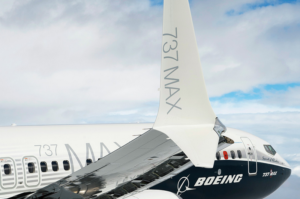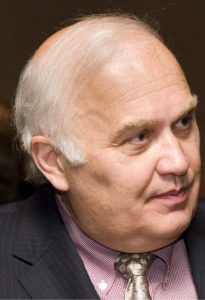Leeham News and Analysis
There's more to real news than a news release.
Bjorn’s Corner: Why I wouldn’t hesitate to fly on the MAX after the fix
May 18, 2019, ©. Leeham News: We are now two months into the grounding of the Boeing 737 MAX because of MCAS. Boeing announced yesterday it has finished the work on the fix and it’s now ready for FAA certification flights. Once FAA has certified the fix, the 737 MAX will return to the sky. At least this is how it used to be.
A lot of hesitation and distrust has come into the system since the March 13th grounding. Here’s why I wouldn’t hesitate to fly on the MAX after the fix.
How Boeing named, promoted the MAX in early days
Subscription Required
Now open to all readers
Introduction
May 16, 2019, © Leeham News: As a Congressional investigation into the Federal Aviation Administration’s oversight and certification of the Boeing 737 MAX development ramps up, LNA dipped into its archives to review what the company was telling the public.
 The MAX was hastily launched in July 2011, when American Airlines informed Boeing it was about to place a record-setting order for nearly 500 airplanes. Airbus was lined up to snare it all with the A320ceo and neo families unless Boeing could make a credible offer.
The MAX was hastily launched in July 2011, when American Airlines informed Boeing it was about to place a record-setting order for nearly 500 airplanes. Airbus was lined up to snare it all with the A320ceo and neo families unless Boeing could make a credible offer.
Within 48 hours, Jim McNerney, then-CEO of Boeing, made the decision to launch the re-engined design of the 737. This later was branded the MAX.
It was a plane Boeing designed but didn’t want to build.
Once launched, Boeing had to play catch up to Airbus, which had a seven month lead with its neo. The public messaging was long on bashing the A320. There were few technical details presented in public, but the basis for what’s become in focus today after two fatal crashes was there.
Summary
- Boeing promoted commonality between NG and MAX.
- Making a virtue of basic design.
- Integrating the larger engines.
- Promoting the same simulators.
Boeing to support MAX simulator demo (Update)
- Boeing CFO meetings show confidence in recertifying MAX sooner than later.
- Returning to pre-grounding production rates will be “gradual.”
- FAA clearance anticipated in 4-5 weeks.
- Boeing will urge pilots, regulators to witness simulations of MCAS flight characteristics.
- NMA, 777X delays likely.
UPDATE: Cowen & Co issued a revised note today, with new language concerning simulations of the MCAS flying characteristics. Boeing is not urging sim training. Rather, it is urging regulators and pilots to go to sites where MAX MCAS flying characteristics may be witnessed and understood. Cowen tells LNA it misunderstood what Boeing said.
May 10, 2019, © Leeham News: In a sign that Boeing is confident it’s on track with the fix of the MCAS for its 737 MAX, the chief financial officer of the company Wednesday and Thursday made the rounds in New York and Boston with aerospace analysts and key institutional investors.
Coming out of these meetings is news that Boeing will support simulator training for pilots to fully understand MAX handling characteristics, one analyst reports.
Greg Smith gave the financial analysts Boeing’s latest thinking about progress in returning the MAX to the skies across the globe. He also said Boeing is using the production slowdown (from 52/mo to 42/mo) to allow suppliers, notably engine maker CFM, to catch up from their own delays and strains. The suppliers maintained the 52/mo rate.
Spirit Aerosystems said it hopes that CFM, which has been running two-three weeks late with engines–will return to rate 52 in June. This is faster than suppliers were told by Boeing when the rate was cut in April. At that time, June’s rate ramp up was goal was 47/mo, with 52 in August and 57/mo in September. Boeing last year planned rate 57 in June this year.
FAA prepared to act alone to lift MAX grounding
Subscription Required
Introduction
May 9, 2019, © Leeham News: Boeing hopes that the Federal Aviation Administration will lift its grounding order for the 737 MAX as early as next month. It is prepared to act alone, LNA has confirmed, rather than waiting for a consensus from global regulations.
Some airlines and aerospace financial analysts, as well as others like LNA, consultants and observers, wonder if global regulators will agree with the FAA or move more slowly.
 The FAA already initially concluded simulator training won’t be necessary for pilots to understand the now-infamous MCAS system and its upgrades. After one round of comments for the proposal, which is common in the FAA process, the agency is accepting a second round of comments.
The FAA already initially concluded simulator training won’t be necessary for pilots to understand the now-infamous MCAS system and its upgrades. After one round of comments for the proposal, which is common in the FAA process, the agency is accepting a second round of comments.
Transport Canada, however, already indicated it wants simulator training before lifting the grounding order affecting nearly four dozen MAXes at Canada’s two largest airlines, Air Canada and Westjet.
Other agencies haven’t publicly weighed in.
There were some reports the FAA may wait for all regulators to agree before lifting the grounding order.
But LNA confirmed the FAA will act on its own review, while fully briefing global regulators, who will make their own decisions.
Summary
- “Regulatory power grab” in focus, writes aerospace analyst.
- Some hope for early lifting of grounding order, others don’t see return to service until September.
- Is the Joint Authorities Technical Review panel the precursor to a new global regulator for certification?
Pontifications: Rebuilding the MAX and Boeing brands
May 6, 2019, © Leeham News: Boeing has a big job ahead of it to restore faith in the 737 MAX with flight crews and the flying public.
Recertification is still weeks or perhaps months away. The return to service may be anywhere from July to August or even longer, depending on how global regulators proceed with review and approval of the revised MCAS software and pilot training.
Pilots at airlines seem split whether a “simple” computer training protocol is sufficient or whether a flight simulator training is required.
Let’s set all this aside on the safe assumption this will work itself out, whether sooner or later.
So, the question then becomes: how does Boeing repair the MAX brand—and its own.
Read more
Ascend takes a close look at MAX values, future
April 30, 2019: Aviation consultancy Ascend took a close look at the Boeing 737 MAX in a 30 minute Youtube video.
The consultancy begins and ends the video talking about other airplanes, but the middle focuses on the MAX, lease rates, values and considerations about the grounding.
The video is below.
Pontifications: “We own it, but…”
April 29, 2019, © Leeham News: Boeing got roundly thumped for blaming the pilots in the Lion Air flight 610 crash involving the 737 MAX last October.
It took months before Boeing CEO Dennis Muilenburg issued a video in which, among other things, he said, “We own it.” He was referring to safety of the MAX.
This was widely interpreted as Boeing stepping up and taking responsibility for at least some of the causes of the Lion Air and Ethiopian Airlines crashes.
Last Wednesday, he took it all back.
On the first quarter earnings call, Muilenburg denied there was any “technical slip or gap” in designing the now famous MCAS system. He said “actions not taken” contributed to the crash, a thinly veiled reference once again to pilot error. (More on this below.)
Initial analyst reaction to Boeing 1Q earnings
 April 24, 2019: Initial analyst reaction to Boeing’s 1Q2019 earnings, which were impacted by the grounding of the 737 MAX two weeks before the engine of the quarter, was positive.
April 24, 2019: Initial analyst reaction to Boeing’s 1Q2019 earnings, which were impacted by the grounding of the 737 MAX two weeks before the engine of the quarter, was positive.
Pre-market trading was initially up more than $6; at this writing an hour later, this eased, coming off slight to being up just under $6.
Here is the initial reaction from analysts:
Boeing 1Q earnings down on MAX grounding; full impact to come
April 24, 2019, © Leeham News: Boeing took a $1bn revenue hit in the first quarter ended March 31, following the grounding of the 737 MAX on  March 13.
March 13.
Earnings from operations reported today were off $525m; net earnings were down $328m.
The press release is here.
The stock market took the news in stride; pre-market trading saw Boeing stock rise more than $6 (1.66%) an hour before opening.
The MAX was grounding March 13, affecting only two weeks of the first quarter. The full impact is to come. As a result, Boeing suspended guidance for the year and will reissue it at a later date.
Latest engine problem means NMA EIS slides
Subscription Required
Introduction
April 22, 2019, © Leeham News: If there remains any doubt that Boeing’s prospective New Midmarket Airplane (NMA) won’t be ready for entry into service (EIS) by 2025, it should be dispelled by now.
The grounding of the 737 MAX March 13, which is likely to continue well into the summer, will delay any launch of the program—should Boeing proceed.
The Board of Directors is unlikely to approve Authority to Offer (ATO) the NMA for sale as long as the cash flow for the MAX is outgoing and not in-coming.
Although this has its own impact on the NMA timing, it’s not the critical factor.
Last week, it was revealed that the CFM LEAP engine on the MAX (and the Airbus A321neo) has a problem called coking, which led to the contained engine failure of a Southwest Airlines MAX being ferried from Orlando (FL) to Victorville (CA) for the grounding of the Boeing airplane (see here and here). It’s the latest in a long line of engine maker problems with their current generation of powerplants.
This issue is unrelated to the MAX MCAS grounding. It also affects some engines on the A320neo family.





